Journey’s End (1930)
“Think of it all as romantic — it helps.”
|
Synopsis: |
|
Genres, Themes, Actors, and Directors:
Review:
That damned, silly, necessary nuisance of a war, indeed! Meanwhile, in the midst of such civilized discussion, we witness a quietly powerful character study of a man (Clive is simply brilliant) struggling to reconcile the reality of his daily lived experiences with the stalwart persona he must maintain, for the sake of all his men. He lives in terror of the rumors he’s sure must be circulating about him (notably, that he’s taken to drinking at all hours of the day), but the storyline surprises us in its ultimate revelations about Clive’s reputation. Viewers willing to sit patiently through what may be the most “talky”, least-action-filled war film ever made will be rewarded by numerous instances of quiet authenticity. My favorite scene is one in which the seasoned Maclaren (affectionately known as “Uncle”) and the green, gung-ho Manners are about to go up into battle; Maclaren reads from Alice in Wonderland while enjoining Manners to use these precious final moments to think about anything at all other than their imminent task. Less successful are periodic snippets of “comedic relief” provided by the company’s clueless cook (Charles K. Gerrard) and a rotund lieutenant (Billy Bevan) who seems resolutely determined to care more about his next meal than the chaos surrounding him. However, it’s moments like all of these, taken together, which ultimately help viewers to understand the complex psychology behind warfare, as these men prepare themselves in a variety of ways to face truly unspeakable horrors. Redeeming Qualities and Moments:
Must See? Links: |
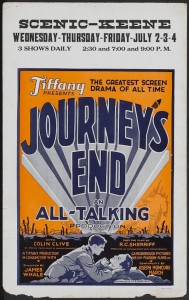
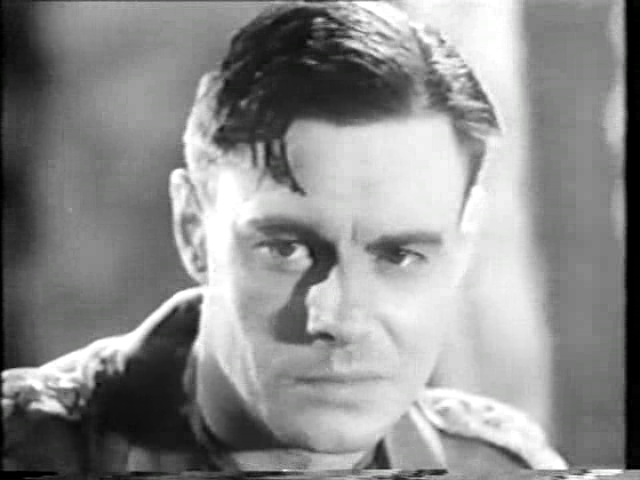
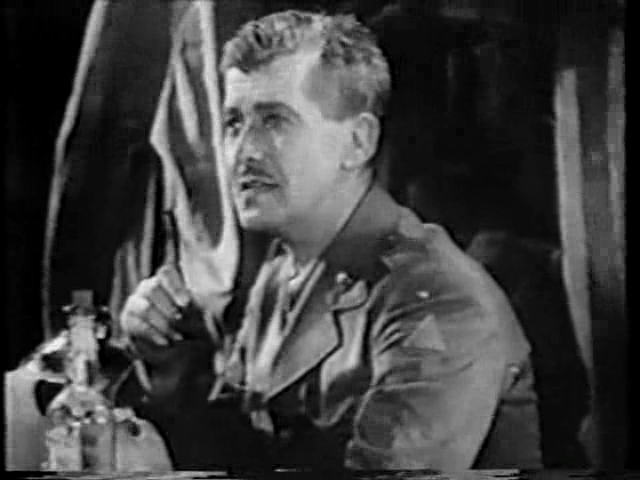
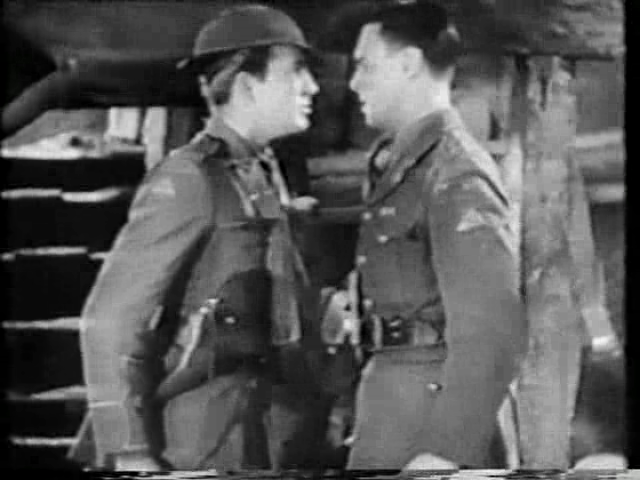
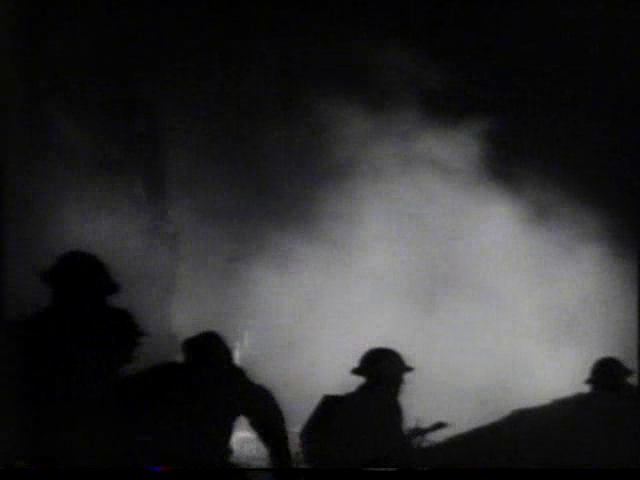
One thought on “Journey’s End (1930)”
A must. This is quite a fine film, one I’d not seen – but it hasn’t been easy locating it. The print I watched, while serviceable, caused me to think ‘JE’ really does seem in need of preservation (badly). How has it happened that so little attention has been given to this film all these years?
A few years back, the play was revived on Broadway – and, considering what dominates Broadway these days, that was a surprising occurrence indeed. It was rather well received critically, and won a Tony award for Best Revival of a Play, but did not do all that well with the public. But, again, considering what a waste land Broadway has been of late, that does not surprise.
Based on a viewing of the film, however, it’s easy to see why the play has endured (and why it had such long initial runs in London and on Broadway many years ago). It’s very well written and structured. It’s rather interesting observing how the playwright took a small group of male characters and made sure to mix them all up into various two-character scenes in order to get an overview of the men as a whole. By the time this film is over, you know quite a bit about this select group.
The film has aged well, I think – mainly due to Whale’s sharp direction and the fine ensemble acting. The entire cast does commendable work. Clive does run the engine remarkably well but the rest of the cast easily falls in line. (Though, normally, I am bothered by what seem extraneous scenes seemingly added for ‘comic relief’, I don’t find the more-comic scenes in ‘JE’ “less successful”. Everything here seems of a piece to me.)
There is a slightly predictable aspect to some of what goes on, but my sense is that’s intentional.
Two fave scenes: Mclaren reads Manners’ letter to his sister out loud to Clive; Clive cleverly convinces the neurotic soldier played by Anthony Bushell that courage is the only option.
The film’s conclusion is quite moving.
What’s most remarkable about Whale, perhaps, is the fact that he was an openly gay artist throughout his career – yet, his intent was always to serve his material first, not allowing his gay sensibility to enter into his work…unless it was perfectly reasonable to do so. (And, at times, it definitely was. Though certainly not in this film.) It’s sad, somehow, that Whale did not have more of a career in Hollywood. He’s someone who deserved to have a longer and more prosperous one.